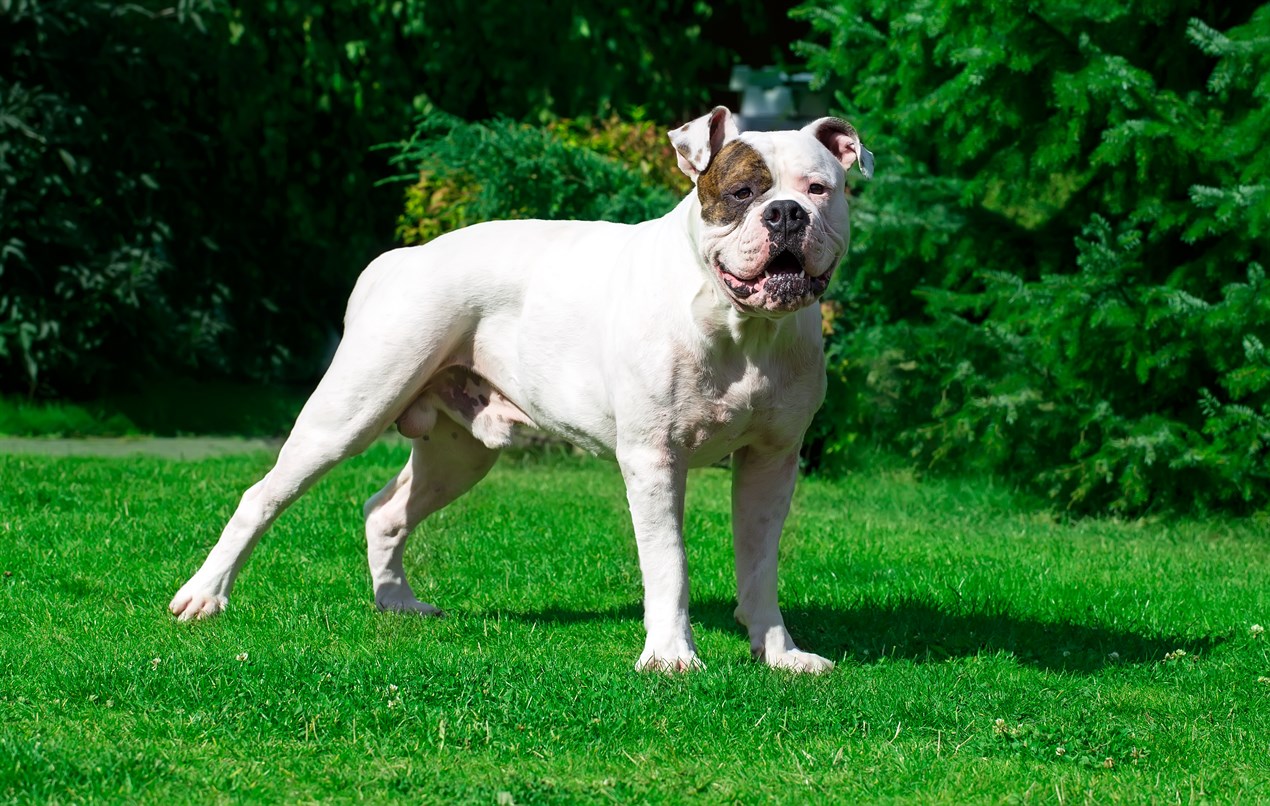Fueling the Strength: Feeding Habits and Nutritional Needs of the American Bulldog

The American Bulldog, with its robust physique and energetic nature, requires a balanced and nutritious diet to support overall health and well-being. Understanding their feeding habits and nutritional requirements is essential for responsible pet ownership. Here's a comprehensive guide to the feeding habits and food requirements of the American Bulldog.
Life Stage Considerations
The nutritional needs of American Bulldogs vary depending on their life stage—puppy, adult, or senior. Puppies need a diet rich in nutrients for growth, while adults require maintenance-level nutrition. Senior dogs may benefit from diets tailored to support joint health and manage weight.
High-Quality Dog Food
Choose a high-quality commercial dog food that meets the nutritional standards set by reputable organisations. Look for a well-balanced formula with a protein source as the primary ingredient. Consult with your veterinarian to select a brand that aligns with your American Bulldog's specific needs.
Protein Requirements
Protein is a crucial component of the American Bulldog's diet, supporting muscle development and overall health. Look for dog foods with animal-based protein sources such as chicken, beef, or fish. Aim for a protein content of around 18-22% for adult dogs and higher for puppies.
Fat Content
Fat is an energy source and contributes to the health of your American Bulldog's skin and coat. Choose a dog food with an appropriate fat content, usually around 8-12% for adult dogs. Puppies may require slightly higher fat levels for growth.
Carbohydrates
Carbohydrates, such as grains and vegetables, provide essential energy. While dogs are not obligate carnivores, American Bulldogs, like many breeds, benefit from a balanced diet that includes carbohydrates. Look for easily digestible sources like brown rice or sweet potatoes.
Avoid Fillers
Minimise the inclusion of fillers, such as corn and soy, in your American Bulldog's diet. These ingredients offer little nutritional value and may contribute to allergies or digestive issues in some dogs.
Portion Control
Proper portion control is essential to maintain a healthy weight for your American Bulldog. Follow feeding guidelines provided by the dog food manufacturer and adjust portions based on your dog's individual needs, age, activity level, and health status.
Feeding Schedule
Establish a consistent feeding schedule for your American Bulldog. Adult dogs may be fed twice a day, while puppies might require three or more meals. Consistency in meal timing helps regulate their digestive system and can assist with house training.
Fresh Water Access
Ensure your American Bulldog has access to fresh and clean water at all times. Hydration is crucial for their overall health, especially considering their active lifestyle.
Treats in Moderation
While treats can be a valuable training tool, use them in moderation to avoid overfeeding. Opt for healthy, dog-friendly treats or use a portion of your dog's regular kibble as rewards.
Regular Veterinary Checkups
Schedule regular checkups with your veterinarian to monitor your American Bulldog's health and adjust their diet as needed. Veterinary guidance ensures that dietary changes align with your dog's specific requirements.
Special Dietary Considerations
Some American Bulldogs may have specific dietary needs or allergies. If you notice digestive issues, skin problems, or allergies, consult with your veterinarian to explore potential dietary adjustments.
By prioritising a nutritious and balanced diet, along with mindful feeding practises, you can contribute to the health and longevity of your American Bulldog. Regular veterinary consultations and attention to their individual needs ensure that they receive the best possible nutrition for a vibrant and active life.
American Bulldog puppies for sale
- Find American Bulldog puppies for sale in ACT
- Find American Bulldog puppies for sale in NSW
- Find American Bulldog puppies for sale in NT
- Find American Bulldog puppies for sale in QLD
- Find American Bulldog puppies for sale in SA
- Find American Bulldog puppies for sale in TAS
- Find American Bulldog puppies for sale in VIC
- Find American Bulldog puppies for sale in WA